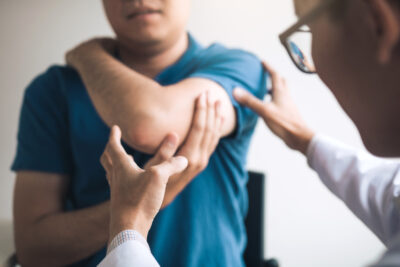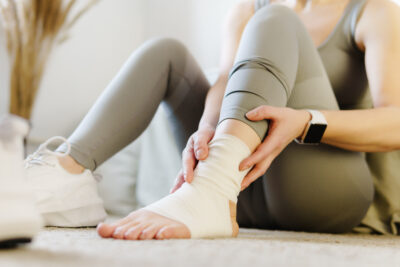The Aging Athlete: Staying in the Game

Why Exercise Is Important As You Age
Hippocrates wrote: “Eating alone will not keep a man well. He must also take exercise.” Only 20% of Americans get the recommended 150 minutes of strength and cardiovascular physical activity per week. More than half of all baby boomers report doing no exercise whatsoever and 80.2 million Americans over age 6 are entirely inactive. Those least likely to engage in physical activity were ages 65 and older (nearly 16 percent of exercisers). With aging, bones can become weak and fragile — a condition called osteoporosis. It often occurs in women after menopause, and in men in older age. This bone-thinning disease puts people at a greater risk for broken bones, which can seriously limit mobility and independence. The most common breaks in older people occur in the wrist, spine and hip. Exercise is important for building strong bones when young, between 10 and 18 years old, and is essential for maintaining bone strength when older. For the aging athlete, physical activity does not increase bone mass, but it can slow bone loss and maintain muscle mass to preserve and strengthen surrounding bone. Exercise improves balance and coordination, helping to prevent falls and broken bones. Balance training and tai chi have been shown to decrease falls by 47% and reduce the risk of hip fracture by approximately 25%. In addition, men who participate in vigorous physical exercise tend to have a lower risk of hip fracture. A team at Penn State University found that lifting lighter weights for more reps improves bone strength, making it a good alternative to heavy lifting. An aging athlete may need to make adjustments to an exercise regimen to include the best workout mix of cardio and strength training. “I always tell people that exercise is regenerative medicine – restoring and repairing and basically fixing things that are broken,” explains Marcas Bammam, director of the Center for Exercise Medicine at the University of Alabama, Birmingham. Exercise has been shown to extend life-span by as much as five years. A small new study suggests that moderate-intensity exercise may slow down the aging of cells. The U.S. National Institutes of Health (NIH) is launching a massive new study with the aim of documenting in unprecedented detail exactly what happens inside a body in motion. Its hope: to prove that exercise is medicine. People who are frail or who have already been diagnosed with thinning bone should talk to the orthopedic specialists at Direct Orthopedic Care about the types of physical activity that would be best for them.
For more information on the cost of care, click here.




